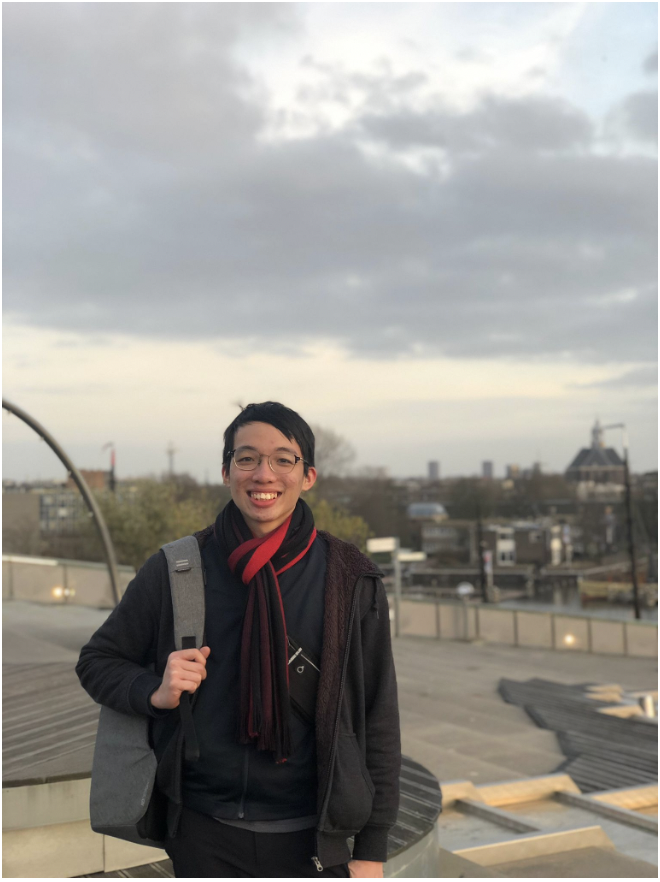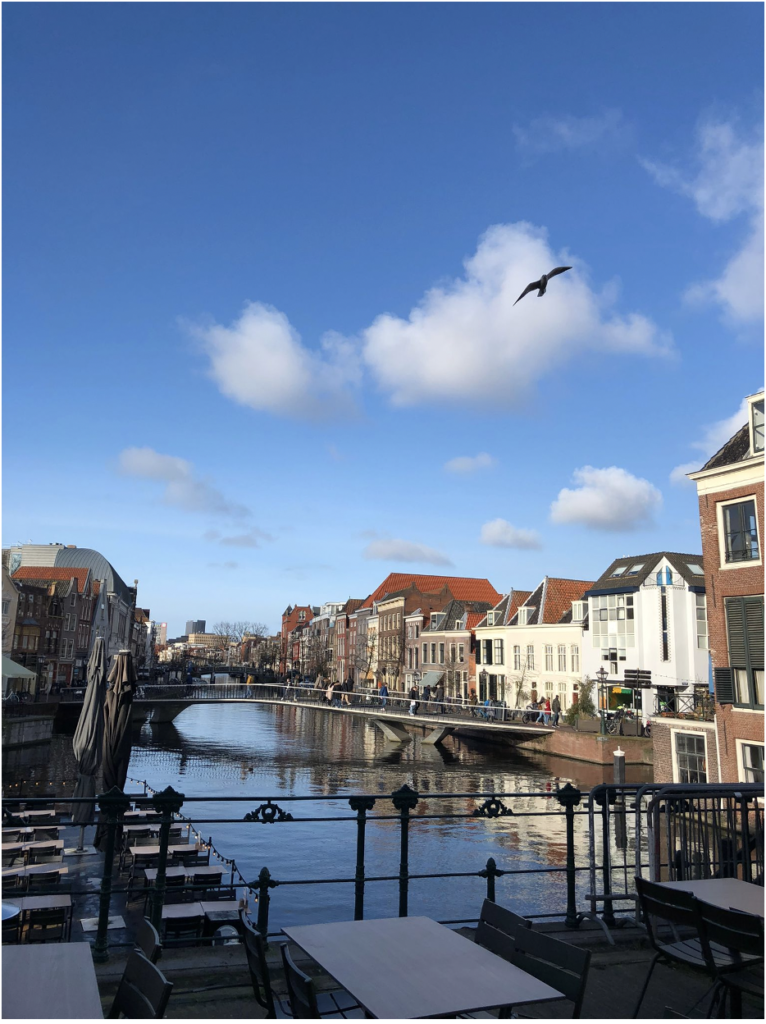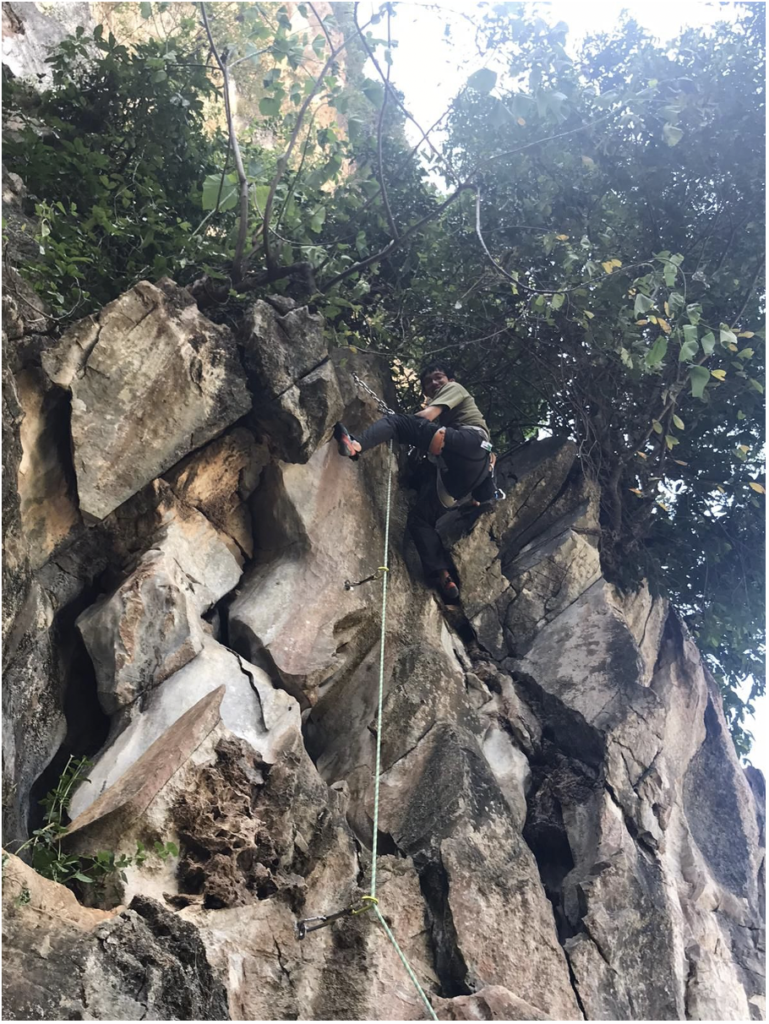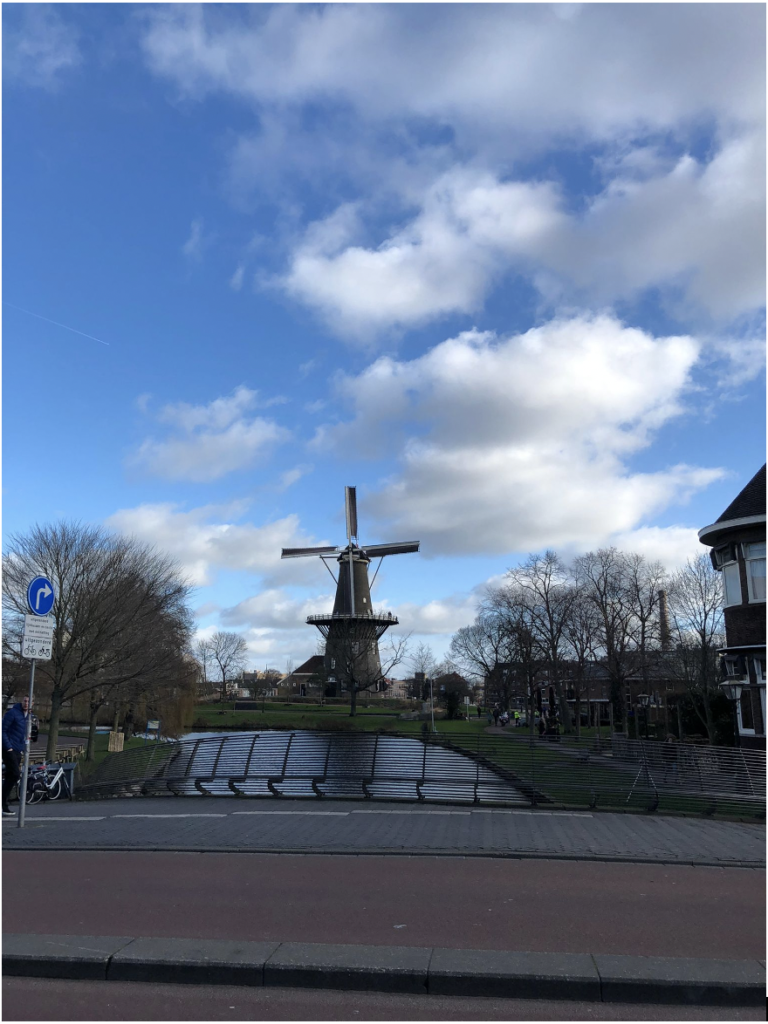
Written by Vanessa Ng
Shawn Kit is currently in the land of canals, windmills and tulip fields. Seven hours behind, he is bathing in the refreshingly cool single-digit temperatures of the Netherlands. Despite all the leisurely strolls and cycling that he could have been doing, Shawn Kit took some time to speak to me on the topic of humanism and what it means to him.
On board a train from Leiden to Amsterdam, in a climate with a less-than-ideal internet connection and some faint background chatter, we sat down almost 10,500km apart for a quick chat.
Leisuring around Leiden
The 24 year old penultimate Yale-NUS student is starting school in slightly over a week. Despite touching down just three days ago, he can already feel the relaxingly paced life in Netherlands where he will be spending six months in. “Perhaps it’s because I’m kind of removed from my responsibilities in Singapore,” he laughed.
Shawn Kit had visited the town of Leiden where his university is located and was in awe of the architecture. He intends to wind down and enjoy his time before school starts.

During his exchange, he will be exploring subjects vastly different from what he was studying back in Singapore. Despite studying a degree in history, Shawn Kit will be doing law modules on technology governance, data science and more. While seemingly unconventional, it is his interest and the ethos of his university to expand one’s horizon. In this case, Shawn Kit has unrestricted electives to help him learn beyond his degree.
Craving Centredness
For Shawn Kit, there were no particular triggers that made him a humanist. Before he became part of the founding team of the Humanism Yale-NUS, he identified as agnostic.
As a curious and open-minded individual, Shawn Kit attended various religious worships to understand more about the modes of how different religions experience their beliefs. “While the unique meanings of each practice and beliefs resonated with me and I gained meaningful insights, none aroused the strong sense of certainty which many identified as part of their religion. This strong sense is what I term as ‘spirituality’.” It seems like none of the religious worship sessions evoked a sense of spirituality in him.
“I see religion as an institutionalised belief that is expressed through practice, community and thought trains. At its core, I believe that religion is about spirituality and how we feel about the world around us.” Despite being non-religious, Shawn Kit recognises that religion plays a fundamentally important role in bringing comfort and providing guidance and support to many.
Delving deeper into humanism, he shared that the unifying belief in humanism stems from intellect and is guided by a rational thinking process. Humanists defer to rationality as a guiding principle, but it is up to the individual to find a deeper personal connection to make humanism their own spiritual belief. After all, if you are guided by philosophy, you can turn to the concept of morality – there is no need to be a humanist. Spirituality, however, is different. It is an inner language that you can turn to which helps you seek a meaningful connection with something bigger than yourself. For humanists, it is up to them to decide what that something is.
“Humanism, to me, is about being centred.” At this juncture, I thought about the age old concept of being mindful and staying centred with yoga. The concept is similar – the yogic mind can be warmed up by staying centred, which is done through dedicating time to completely quiet the mind. With that, you can set an intention for your practice which makes the yoga session more focused. In many ways, perhaps the concept of humanism and religions are all means for their practitioners to learn more about themselves and be grounded as a human being.
“You can rationalise as much as you want to understand and make sense of humanism. However, it is insufficient to make humanism a strong personal belief. We need to decide for ourselves what being human means to us personally.”
Moving Forward with Focus
Shawn Kit does quite a bit of rock climbing. “I’m usually easily distracted. This sport forces me to concentrate.”

Shawn Kit climbing up a series of rocks.
Rock climbing’s appeal is apparent for someone whose mind tends to wander. It is an activity where the climber will plunge, albeit safely, should there be any divided attention. Without focus of the mind and body, it can be difficult to scale up. In his words, the sport is ‘like a mental activity’.
Growing up, Shawn Kit was agnostic. His family has quite a composite and diverse take towards religion and beliefs, and has never imposed any pressure on Shawn Kit to pick a side. He was free to explore what he wanted.
“There may be some misconceptions about humanists being strictly atheist, or as persons who want to discredit religions. This is not true, and we are not anti-religion.” Shawn Kit shared that humanism may carry a bit of a dirty branding, but at the end of the day humanists are just searching for what spirituality means to them, and their place on the surface of Earth.
“Spirituality, to me, is human-specific. It is your personal journey and you get to chart your own route and pace towards spirituality.”
The End
For now, Shawn Kit’s last destination is much simpler. The train has stopped at Amsterdam and he is off to catch up with some friends.

Since secondary school, he has always been interested in how various countries and cultures came into contact and influenced each other. This was also why he opted to take a specialisation in early modern European history in school. The tour of Netherlands has hence been extra enlightening for Shawn Kit, and the rest of his six months there will definitely be a meaningful one.
All photos by Shawn Kit




